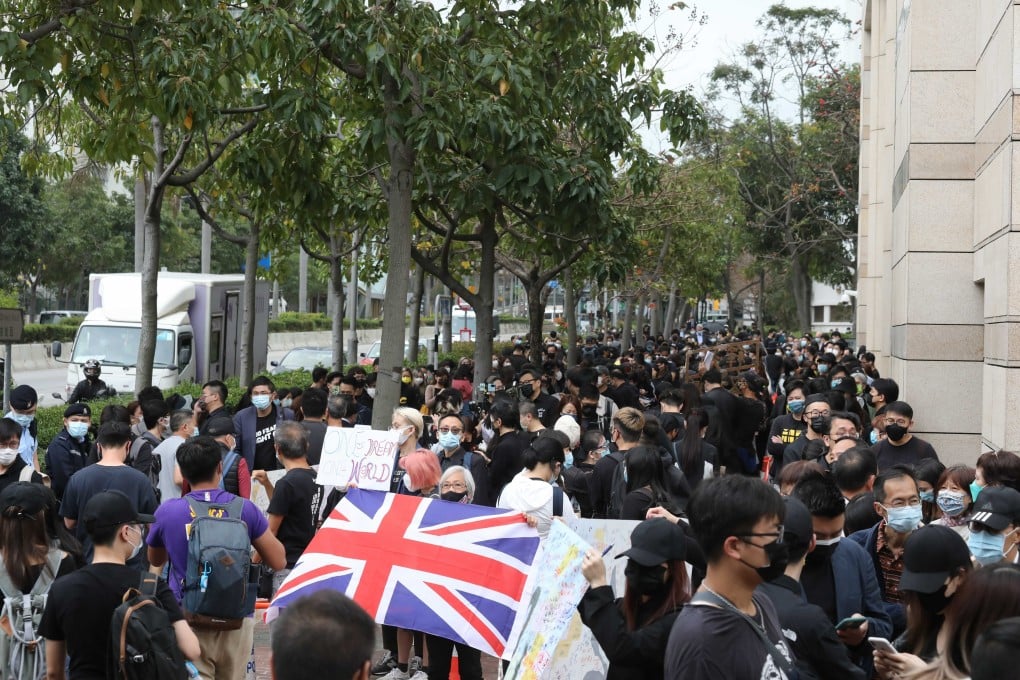Advertisement
Hong Kong national security law: defence slams ‘draconian’ case against 47 opposition figures – but proceedings halted after defendant faints
- Defendant Clarisse Yeung Suet-ying fainted at around 1.45am, after more than nine hours in court – the hearing will resume on Tuesday morning
- The charges, connected to a July election primary, mark the largest prosecutions yet under the Beijing-imposed legislation
Reading Time:5 minutes
Why you can trust SCMP
3

Forty-seven Hong Kong opposition activists appeared in court on Monday, charged with plotting to subvert state power through an unofficial primary election last July, while hundreds of their supporters gathered outside shouting slogans in a show of defiance reminiscent of the 2019 anti-government protests.
Defence lawyers at the West Kowloon Court bail hearing accused the authorities of abusing their power to lock up the activists even though they were not yet ready for the city’s biggest prosecutions under the national security law.
The hearing, which had begun at 4pm, was interrupted at around 1.45am when defendant Clarisse Yeung Suet-ying fainted. The case was adjourned by Chief Magistrate Victor So Wai-tak around an hour later.
Advertisement
The proceedings are expected to resume on Tuesday at 11.30am. Defendant Benny Tai Yiu-ting, the legal academic who organised the unofficial primary, has been given permission to attend an appeal hearing at the Court of Appeal in the morning before returning to West Kowloon Court in the afternoon.

06:05
47 Hong Kong opposition activists charged with subversion under national security law
47 Hong Kong opposition activists charged with subversion under national security law
While asking the court to hold the 47 defendants in custody, prosecutors revealed that they needed at least three extra months for police inquiries, and could not say when those investigations would be completed.
Advertisement
That drew a backlash from the other side of the bench, as defence lawyers called prosecutors’ handling of the case “draconian” and raised concerns that their clients could end up staying years behind bars even before the actual trial could begin.
Advertisement
Select Voice
Select Speed
1.00x